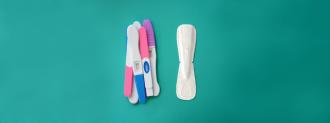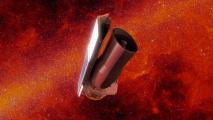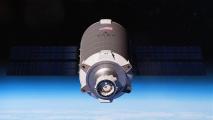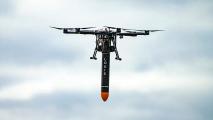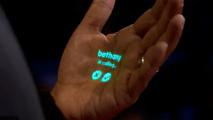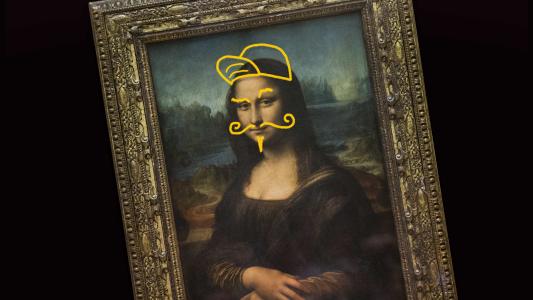A team of women has developed a flushable, biodegradable pregnancy test, which is finally available to customers.
Leveling up privacy: The first home pregnancy test became available in the late ’70s — promising to offer women a new level of privacy. Suddenly, women could find out if they were pregnant in the privacy of their home bathrooms. No more doctors. No more fuss.
But, if anyone going through “pregganoia” has tried to keep the results of a home pregnancy test private by burying it in the trash under mounds of toilet paper fluff, it seldom works. Someone is bound to find it. (And it will probably become the plotline for a sitcom, like Friend’s The One with Monica and Chandler’s Wedding, or Glee’s Girls (and Boys) On Film.)
Ladies, when we toss that stick — we want it gone. Done. Forever.
Well, now — four decades after the first at-home pregnancy test — privacy is going up a notch. Now you can flush “the stick” down the toilet. And, because this new test is biodegradable, you don’t have to feel bad about a damn thing.
The eco-friendly pee-stick: Pregnancy tests haven’t changed in decades. The advances in fertility tests have largely served to modernize the devices by digitizing them with fancy electronic screens or bulky plastic ergonomic handgrips. The evolution of pregnancy tests has made them harder and harder to recycle.
The test and toss nature of pregnancy tests mean their short lifespan comes with an environmental cost. However, Lia Diagnostics’ CEO Bethany Edwards and co-founder Anna Couturier-Simpson have developed a new and improved pregnancy test called Lia.
“As women with a passion for reproductive health and deep roots in product design and engineering, my co-founder Anna and I realized that no one had innovated the design of the pregnancy test in over 30 years. By recognizing the frustrations that come with the modern-day pregnancy test and the amount of unnecessary plastic waste polluting our planet, it became clear we needed to create something better that could make a lasting impact,” Edwards told Freethink.
Plastic, glass, or nitrocellulose are used in almost all single-use pregnancy tests. But Lia is made from the same plant fibers used in most toilet papers, reports Technical.ly. The flushable test doesn’t contain plastic and glue and should biodegrade in a matter of months.
How they did it: Using a specially elevated toilet with transparent PVC pipes to monitor flushability, the duo tested countless tests.
“We really had to develop our own coatings, proprietary coatings, to allow the paper and the materials that we’re using to hold up in use but also be able to break down quickly after you’re done,” Edwards told VOA News.
“It’s kind of a very counterintuitive sort of thing,” she added. “You want something that has rigidity and structure, but then after you’re done with it, doesn’t, and is able to become flimsy and separate in water.”
Their first positive test result announced Couturier-Simpson’s baby, who is now one and a half years old.
Bottom line: The team came up with a pregnancy test that is easy, minimalist, and does exactly what it needs to do at one of a woman’s most stressful times.
“They need to know an answer,” Couturier-Simpson told Fast Company. “They don’t need a computer screen, and batteries, and excess plastic, and glass fibers, and all this junk. Yes or no: That’s what you need.”
We’d love to hear from you! If you have a comment about this article or if you have a tip for a future Freethink story, please email us at tips@freethink.com.
